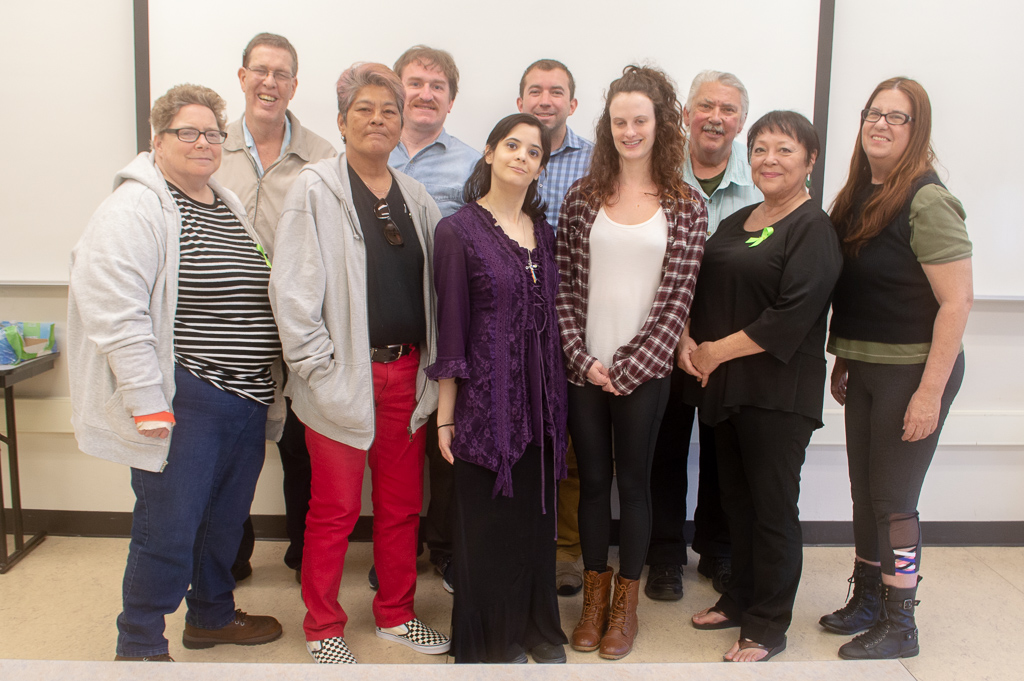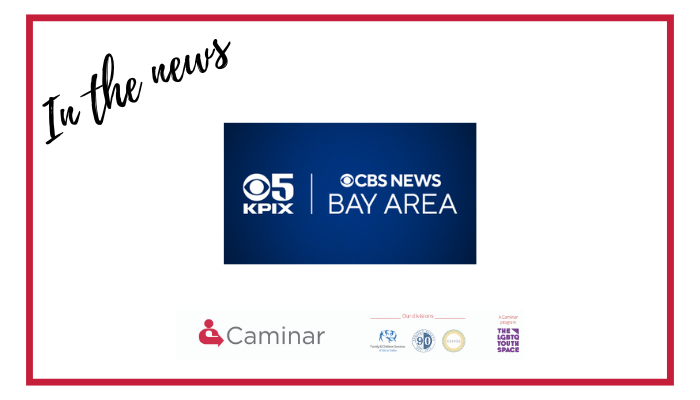Our Case Management programs assist individuals in meeting their basic needs while fostering empowerment, self-determination, and personal growth. Staff collaborate with each client to create a personalized recovery plan by focusing on life skills.
Caminar's intensive case management provides a range of services to every client, from our most fragile clients in Assisted Outpatient Treatment (AOT) to our most independent clients in the Wellness and Recovery Action Plan Program (WRAPP) and our young adult clients and in Young Adult Independent Living (YAIL) program, and the everything in between.
Referrals and funding for community integration programs are received from San Mateo County Behavioral Health and Recovery Services.
——————————————————————
Assisted Outpatient Treatment (AOT) was launched in August 2016 and uses the Full Service Partnership “whatever it takes” approach to support individuals with serious mental health conditions as they transition from inpatient care to outpatient living. The program provides 24/7 intensive mental health services, housing support, and life skill development. AOT was established following San Mateo County’s adoption of Laura’s Law (Assembly Bill 1421), which allows counties to order people with severe mental illness who aren’t otherwise connected with services into assisted outpatient treatment.
——————————————————————
Full Service Partnership (FSP) provides services to some of San Mateo County's most fragile individuals and integrates streamlined, holistic health care utilizing the best-practice model of assertive community treatment. The team includes the added benefit of medical clinic services and a 24-hour on-call emergency response service.
——————————————————————
Closely connected to our FSP program, our Recovery, Empowerment And Community Housing (REACH) also serves San Mateo's severely mentally ill individuals but is a step down from FSP. REACH is an innovative and highly successful program that provides services to people who benefit from a high level of assistance to achieve their life goals. REACH pioneered hiring peer support staff to act as recovery role models to REACH participants, most of who live in their own apartments and participate in their community. This program also has medical clinic services and a 24-hour on-call emergency response service.
——————————————————————
A step down from REACH is our New Ventures program which provides personalized rehabilitation services to people who need support while they develop and work towards accomplishing their life goals. Services are provided in the community and based upon an individualized treatment plan that focuses on strengths and abilities. The program helps individuals maintain housing by helping to develop daily living skills. New Ventures collaborates with Caminar’s Supported Education and Jobs Plus programs to encourage the achievement of vocational and educational goals.
——————————————————————
Wellness, Recovery, and Partnership Program (WRAPP) is a program specifically designed to enhance full recovery and community integration for our most independent clients. While in most programs, people who have achieved a high degree of recovery are often given few—if any—services, this program provides focused attention and encouragement to individuals who have a lot of success going on in their lives. It concentrates on the development of natural supports and accessing self-help opportunities. Participants develop Wellness Recovery Action Plans (Mary Ellen Copeland’s relapse prevention and wellness tool) and begin to gain confidence in their ability to reach for the stars—a career, meaningful relationships, a community of friends.
——————————————————————
The Young Adult Independent Living (YAIL) program offers support for young adults in San Mateo County as they transition into adulthood and seek recovery from mental health and/or substance use issues. The YAIL team strives to empower young people to build full, productive, and independent lives in the community.
YAIL offers community-based and on-site programs. All participants have a case manager, create individual goals and action plans, and may access group sessions, social activities, and support to build independent living skills.
COMMUNITY-BASED PROGRAM
Young adults live with their families, in their own apartments, or in supported living facilities.
ON-SITE PROGRAM
The YAIL campus in Redwood City provides housing for six program participants in two-bedroom apartments. Residents may stay up to two years, or until their independent living skills are developed to the point that they can move on to appropriate living arrangements in the community.
To be eligible for YAIL, a young adult must meet the following guidelines:
Referrals typically are made by the young adult’s assigned therapist or care coordinator within San Mateo County Behavioral Health and Recovery Services. To request a referral form or learn more about YAIL, please contact us at 650.367.9610 or YAIL@caminar.org. If the young adult does not have an open episode, please call the County Behavioral Health and Recovery Services ACCESS Call Center to request an assessment: 800.686.0101.









